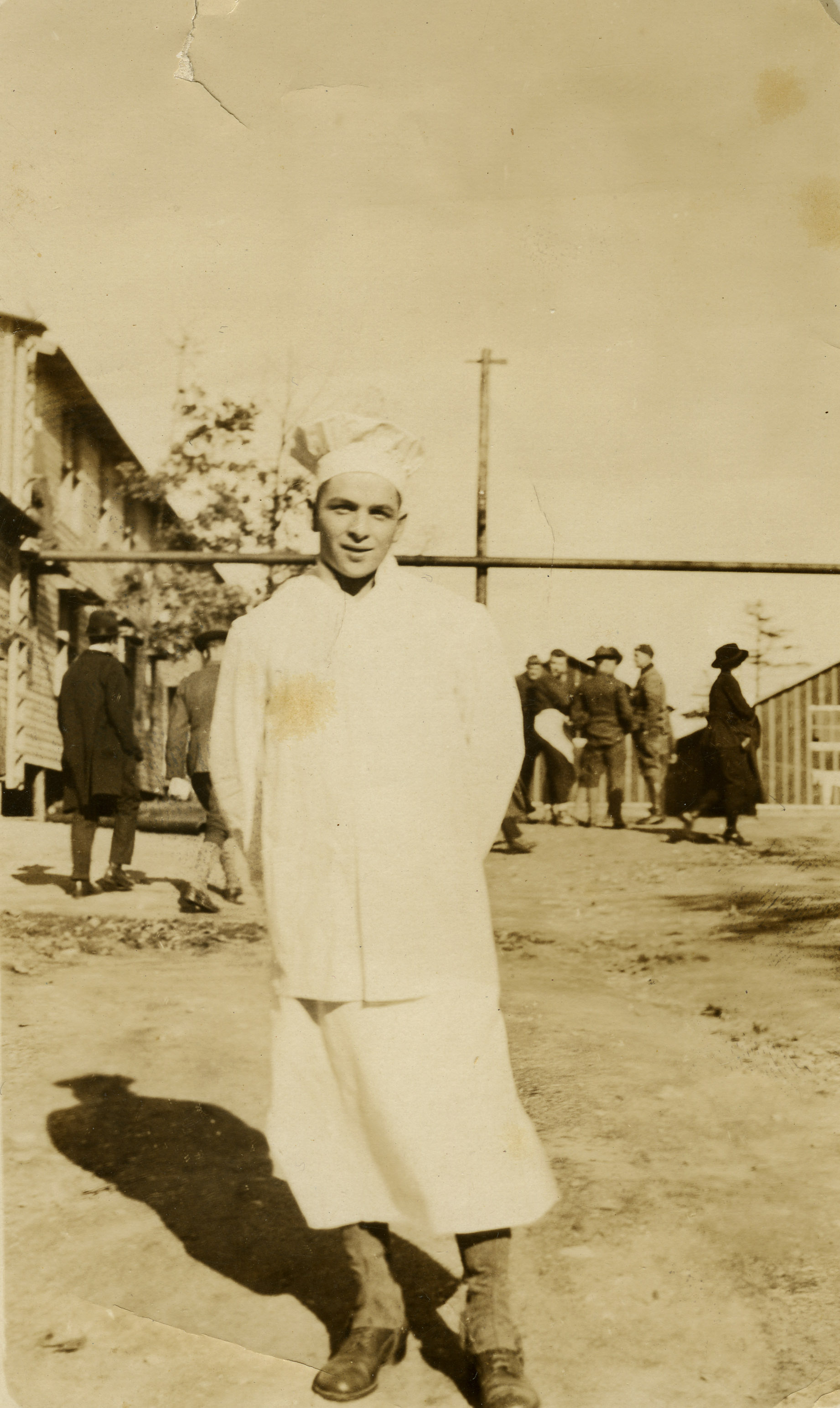Background on Charles Jackson

Charles Jackson at Camp Devens, 1918
A member of the American Expeditionary Force during the First World War, Charles E. Jackson was a working class Irish Catholic man from Northampton, Mass. Jackson's parents, Patrick and Catherine (Whalen) Jackson, arrived as immigrants from Waterford, Ireland, in about 1860 and after marrying in 1863, steadily assembled a large family. Although far from wealthy, Patrick's hard work brought his success enough to purchase a home and small farm at 174 Hinckley Street in the Bay State Village neighborhood, a largely Irish community that served as the focal point for the family for many years. As his children came of age, each took their place in the trades, with daughters listed in the census as dressmakers or milliners and sons as carpenters and brick masons.
The youngest of twelve (although three had died before his birth on April 17, 1889), Charles was employed as a clerk at the large Main Street store operated by J. A. Sullivan when he registered for Selective Service in June 1917. When his number came up early in 1918, he was ordered to Camp Devens and assigned for duty with the 301st Ammunition Train of the 151st Field Artillery Brigade, a part of the 76th (Liberty Bell) Division. By the time his unit left Camp Devens in July, the war dictated a notable change in role. When they shipped out, the 301st left behind the horses they had trained with, learning that they were to be reequipped and motorized in France. For the most active part of his service, Jackson drove trucks. The 301st were not sent forward until October, when they operated near Saint Mihiel, the German salient which had been cut off less than a month previously, and they took part in action directly only in the last week of the war.
After the Armistice in November, and with no more need for ammunition trains, the 301st was reassigned to the 164th Infantry and sent for duty in the classification camp at Saint Aignan des Noyers. For a long seven months, Jackson and his comrades helped evaluate American soldiers for priority in returning to the states. An optimistic soldier, Jackson was satisfied with the posting at first, seeing it as a way to help the wounded or gassed get home, but he gradually grew frustrated with the slow pace and then angry at soldiers who used political or other connections to jump ahead. He remained in Saint Aignan des Noyers until early June, when a bout of appendicitis earned him his ticket. Jackson's elderly father died before he had a chance to return to Northampton.
Civilian life for Jackson meant a return to familiar work. Resuming his job at J.A. Sullivan, he took possession of the family home at 174 Hinckley where he lived with his elderly mother and various brothers and sisters until his death on April 12, 1930. He is buried with his parents, a grandmother, and three brothers at Saint Mary's Cemetery in Northampton.
Children of Patrick and Catherine Jackson
- Michael (1864-1957)
- Thomas (1867-1883)
- Margaret (1869-1870)
- Margaret (1870-1936) married (1915) to Thomas Francis Sheehan
- Mary (1872-1948) married (1913) to Frank Valentine O'Hara
- John Andrew (1874-1960)
- Lawrence (1876-1909)
- Katherine (1879-1959) married (1903) to Leon Smith
- William (1881-1883)
- Patrick Francis (1883-1963)
- Thomas W. (1885-1964)
- Charles Edward (1889-1930)

